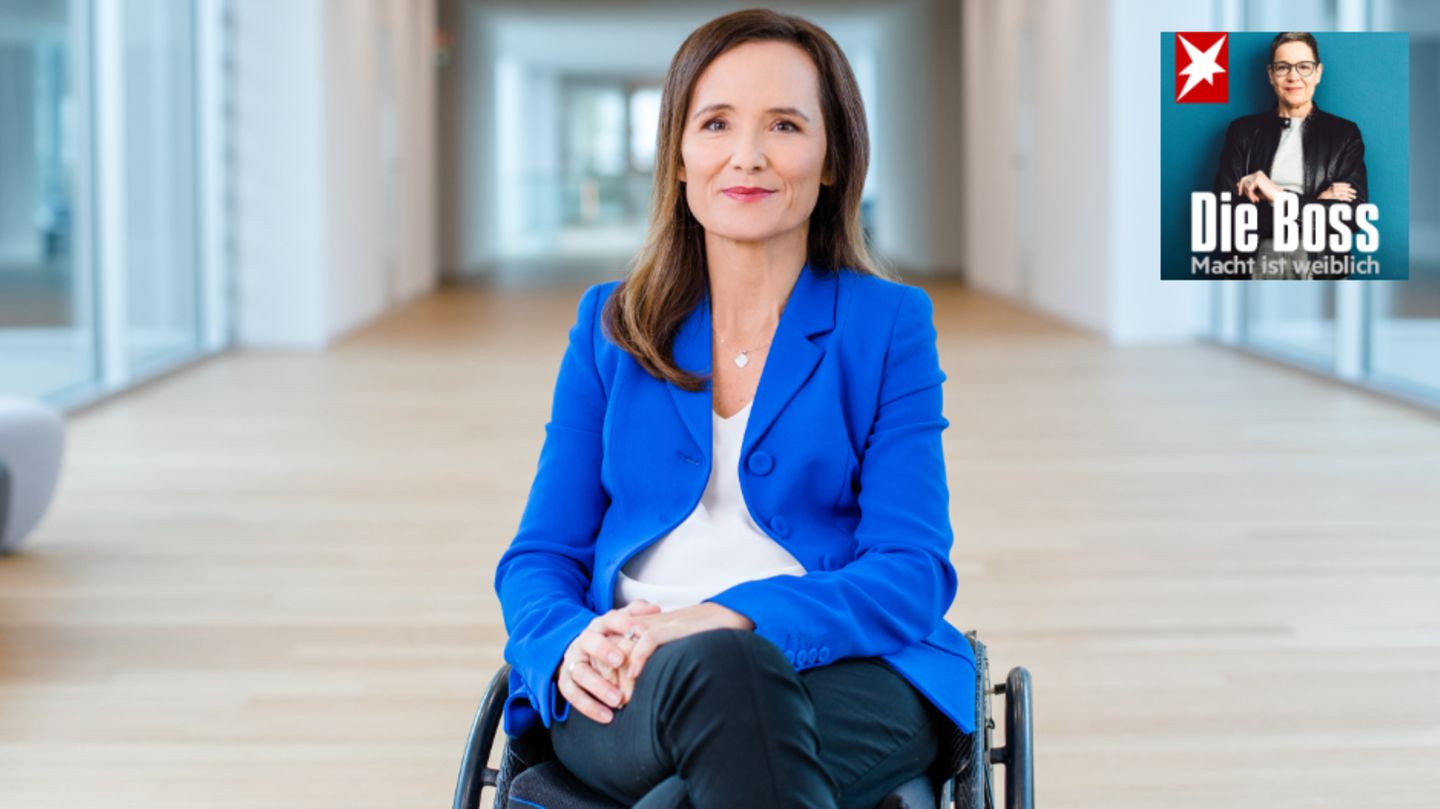Mirjam Kottmann has been presenting the news at Bayerischer Rundfunk since February – in a wheelchair. After 70 years of public service, she is the first to do this. On “Die Boss” she talks about her illness MS, her love of journalism and why accessibility should interest us all.
It was a conscious decision that the picture of Mirjam Kottmann in a wheelchair at the BR news desk was shown in all the media. And yet the 49-year-old presenter says: “The focus should still be on my work as a journalist and not on the fact that I’m sitting in a wheelchair.” However, we are obviously not there yet.
In the current episode “Die Boss” Mirjam Kottmann talks to host Simone Menne about dealing with illness in Germany and the danger that people are deported to a special world because of their disabilities. She explains why she doesn’t actually like the term “disabled” and why you can still sometimes laugh at limitations. But: “We have to move away from reducing people who have an impairment to that and then praising them for being great at something despite their impairment.”
Accessibility in Germany: “There’s so much that’s wrong, it’s really embarrassing”
Her verdict on accessibility in Germany is devastating: “There’s so much that’s wrong, it’s really embarrassing.” 97 percent of those who use a wheelchair get this disability due to an accident or illness, says Kottmann. Or you are dependent on a wheelchair in old age. “It can actually affect anyone. In this respect, barrier-free thinking is for all of us.”
The journalist was diagnosed with multiple sclerosis when she was just 22 years old. For years she has carried out major reports for BR and covered historical moments. She moderated skiing, climbed an icy waterfall, accompanied the death of Pope John Paul II and the subsequent election of a German pope. It is the diversity of the profession that makes her love for journalism so great, she says.
At some point, however, the symptoms of MS could no longer be hidden; she had to openly discuss her illness, a difficult step: “I didn’t want to be the sick Mirjam. I just wanted to be the normal reporter Mirjam, the one you can send anywhere, the one who goes to the hospital I didn’t want to be reduced to the illness, I was afraid I wouldn’t get any more exciting stories.” Mirjam Kottmann continues to work in the foreign editorial department, not everything works anymore, but some things still work – like moderating a news program.
“The job gives me support, structure and strength,” she says. “When I’m at work and really concentrating on what I’m doing, when I’m out and about, doing interviews, I forget about my illness. Even when I’m in the television studio and presenting my show, I’m a journalist and it doesn’t matter at all that I’m in a wheelchair.”
Nevertheless, the 49-year-old struggles with her situation every day, she says. “Many, many things are no longer possible and I am incredibly sad about that.” The worst thing is the lack of freedom, being unable to do anything spontaneously and always having to rely on help. And yet she says there’s no point in looking back: “You have to focus on what’s still possible, really live it and not put things off.”

“The Boss” newsletter
“The Boss” host Simone Menne and star-Editor Laura Csapó will write to you on a rotating basis female leadership. Analysis, tips and tricks. 14 days, always between podcast episodes.
At “The Boss – Power is Female” top women talk among themselves: host and multi-supervisory board member Simone Menne (including BMW, Deutsche Post DHL, Henkel) meets bosses from all areas of society to talk to them about their lives and careers. “Die Boss” is published fortnightly on Wednesdays and the of the star as well as onand all common podcast platforms.
Editor’s note: Stern belongs to RTL Germany.
Source: Stern




